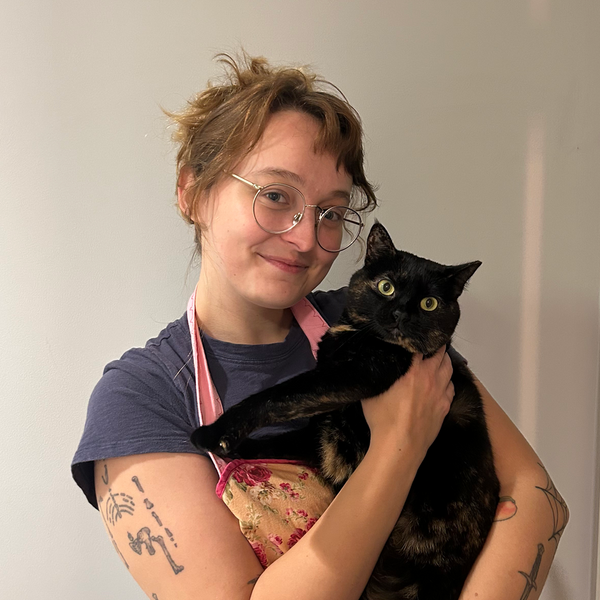
Food Studies, Popular Culture Representations of Food, the 1950s and 1960s, Intersections of Race, Gender, and Class in American Popular Culture
Emily’s research focuses on the intersections of race, gender, and class in United States food culture in the 1950s and 1960s. Analyzing how food both perpetuates and creates new ideologies of identity, Emily looks to complicate dominant narratives of food that overwhelmingly foreclose understandings of culinary power in the theoretically “Golden Age” of American life.
Before starting her Ph.D. program, Emily earned her M.A. in American Studies at the University of Massachusetts Boston. Her thesis, “‘By my good friend, Betty Crocker!’: Cold War Alienation of the American Housewife,” examined how white women, though seemingly enjoying domestic life following World War II, were deeply unfulfilled by the realities of white, cisgender, heterosexual, middle-class experience. Internalizing a complex set of love politics that stressed white individualism, domestic production, and devotion to the nuclear family, these women reinforced and recreated the dynamics of racial capitalism during the Cold War period. Using the fictional figure of Betty Crocker as guide and companion during an era of isolation and individualism, these white homemakers and the system of racial capitalism they perpetuated through cooking provided highly contradictory and meaningful developments of the “self” in the postwar era. Emily received the American Studies Graduate Book Award for her project.